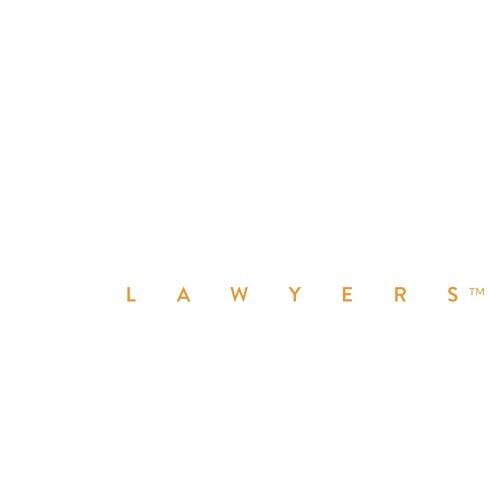Best Sexual Harassment Lawyers in Windhoek
Share your needs with us, get contacted by law firms.
Free. Takes 2 min.
List of the best lawyers in Windhoek, Namibia
About Sexual Harassment Law in Windhoek, Namibia
Sexual harassment is a critical issue in Windhoek, Namibia. It involves unwanted and inappropriate actions or remarks with a sexual dimension, often occurring in workplaces, educational institutions, or public spaces. The Namibian government has enacted laws to protect individuals from sexual harassment, recognizing its impact on personal dignity and work environment. These regulations aim to foster a safe and respectful environment for all individuals, irrespective of gender or background.
Why You May Need a Lawyer
Legal assistance might be beneficial in several scenarios related to sexual harassment:
- Victim Assistance: If you are experiencing sexual harassment and need to understand your rights or seek protection.
- Legal Proceedings: If considering legal action against an alleged perpetrator or defending against accusations.
- Policy Implementation: Employers may need help creating or enforcing anti-harassment policies.
- Dispute Resolution: When mediation or negotiation is required to resolve harassment claims.
Local Laws Overview
In Windhoek, and Namibia at large, several key legislative and regulatory frameworks exist to address sexual harassment:
- Labour Act 11 of 2007: Prohibits sexual harassment in the workplace and provides a framework for dealing with complaints.
- Combating of Domestic Violence Act 4 of 2003: While primarily focused on domestic violence, it includes provisions related to sexual harassment.
- Education Act 16 of 2001: Mandates the protection of students from harassment in educational settings.
- Gender-Based Violence Policy: Initiatives to combat and prevent occurrences of sexual harassment as part of broader efforts against gender-based violence.
Frequently Asked Questions
What constitutes sexual harassment in Namibia?
In Namibia, sexual harassment includes unwelcome sexual advances, requests for sexual favors, and other verbal or physical conduct of a sexual nature.
Can men be victims of sexual harassment?
Yes, victims of sexual harassment can be of any gender, including men. The law protects all individuals equally.
What should I do if I experience sexual harassment at work?
Document the incidents, report them to a supervisor or HR, and seek legal advice if needed. The Labour Act requires workplaces to address these complaints.
How can employers prevent sexual harassment?
Employers should implement comprehensive anti-harassment policies, conduct regular training, and foster an inclusive culture.
Is there a time limit to report sexual harassment in Namibia?
While it is advisable to report harassment as soon as possible, legal proceedings should consider any statutory limitations. Consult a lawyer for specifics.
What should I do if my complaint is not taken seriously?
If an employer fails to act, victims can escalate their complaints to appropriate legal authorities or seek independent legal counsel.
Are there any penalties for false accusations of sexual harassment?
Making false accusations can lead to disciplinary actions and potential legal repercussions, emphasizing the need to report incidents truthfully.
Can students report sexual harassment in educational institutions?
Yes, students have the right to report harassment to school authorities, who are obligated to investigate and take necessary action.
What role does the Namibian police play in sexual harassment cases?
The police can help in situations where harassment overlaps with criminal behavior, providing protection and facilitating investigations.
Can I resolve sexual harassment issues without going to court?
Mediation and alternative dispute resolution mechanisms are available and are often encouraged before proceeding to court.
Additional Resources
- Ministry of Gender Equality and Child Welfare: Offers resources and support for victims of sexual harassment.
- Legal Assistance Centre (LAC): Provides legal advice and representation for claims related to sexual harassment.
- NAMRIGHTS: An NGO promoting human rights, including anti-sexual harassment efforts.
- Women’s Action for Development (WAD): Works on issues relating to gender-based violence, including sexual harassment.
Next Steps
If you need legal assistance with a sexual harassment issue, consider these steps:
- Document Everything: Keep detailed records of all incidents of harassment, including dates, times, places, and any witnesses.
- Report the Incident: Notify your employer, educational institution, or, in serious cases, the police.
- Consult a Lawyer: Seek legal advice to understand your rights and the potential pathways for action.
- Contact Support Organizations: Reach out to organizations that specialize in dealing with sexual harassment for additional support and advice.
Remember, acting promptly and seeking proper guidance can significantly impact your case's resolution and outcomes.
Lawzana helps you find the best lawyers and law firms in Windhoek through a curated and pre-screened list of qualified legal professionals. Our platform offers rankings and detailed profiles of attorneys and law firms, allowing you to compare based on practice areas, including Sexual Harassment, experience, and client feedback.
Each profile includes a description of the firm's areas of practice, client reviews, team members and partners, year of establishment, spoken languages, office locations, contact information, social media presence, and any published articles or resources. Most firms on our platform speak English and are experienced in both local and international legal matters.
Get a quote from top-rated law firms in Windhoek, Namibia — quickly, securely, and without unnecessary hassle.
Disclaimer:
The information provided on this page is for general informational purposes only and does not constitute legal advice. While we strive to ensure the accuracy and relevance of the content, legal information may change over time, and interpretations of the law can vary. You should always consult with a qualified legal professional for advice specific to your situation.
We disclaim all liability for actions taken or not taken based on the content of this page. If you believe any information is incorrect or outdated, please contact us, and we will review and update it where appropriate.















